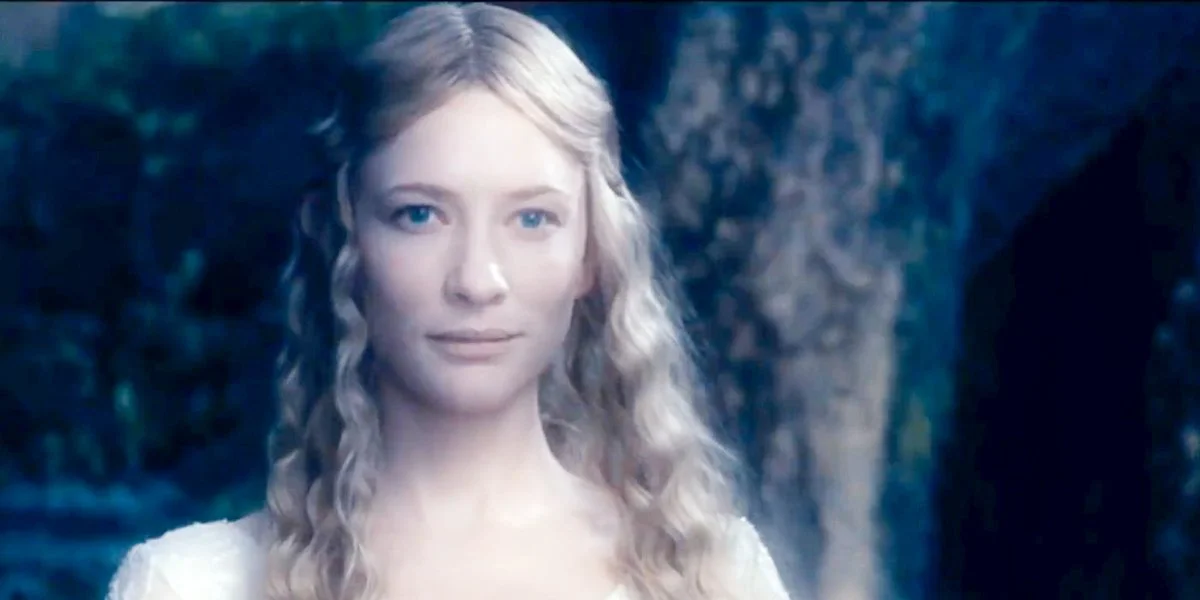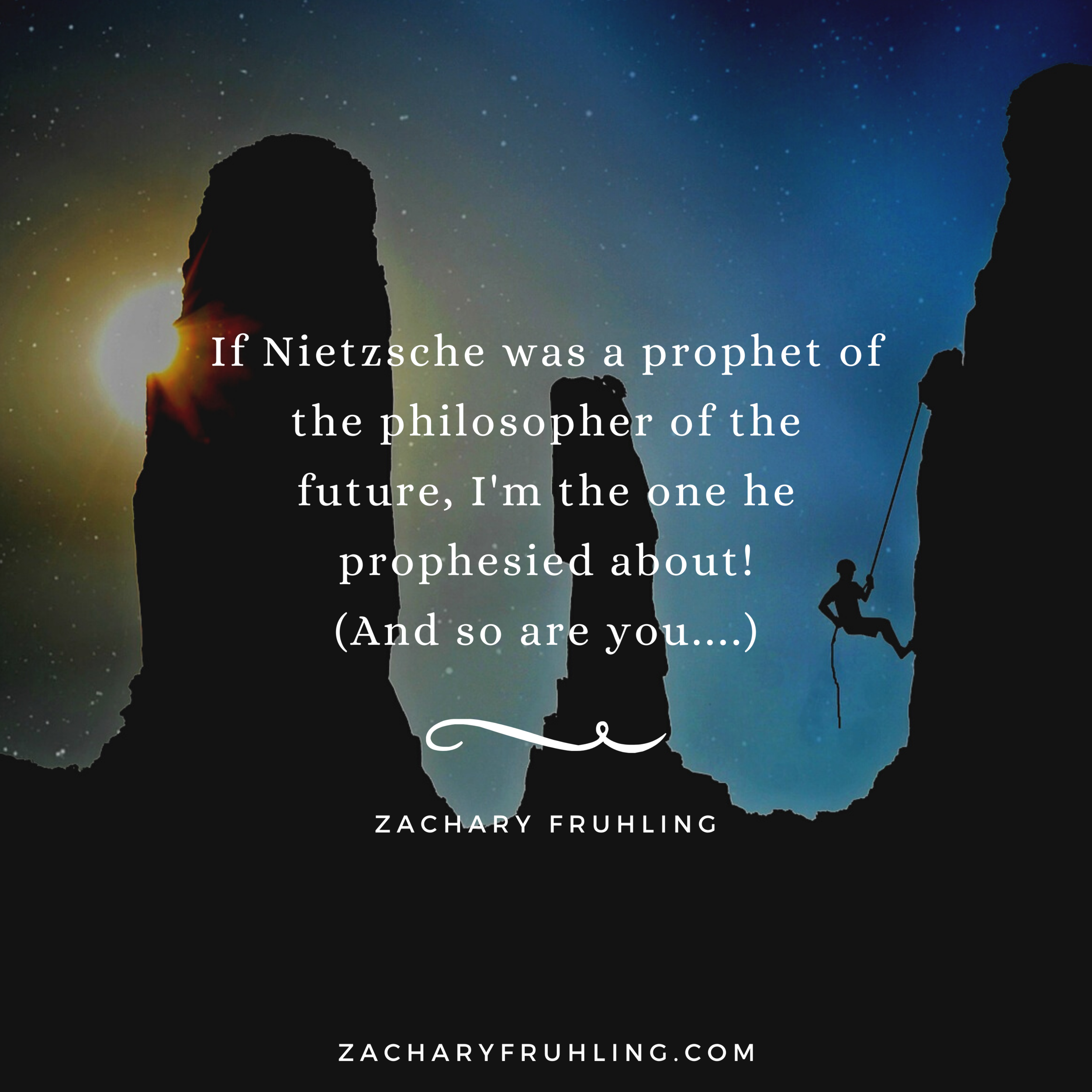"I Will Diminish": On Remaining Oneself
In the 2001 fantasy film The Lord of the Rings: The Fellowship of the Ring, the character of Galadriel, the Lady of the Wood and the Lady of Light, is tempted to take the One Ring from the hobbit Frodo. Temporarily overcome by the power of the One Ring, Galadriel shares a frightening vision of herself with the ring in her possession:
I do not deny that my heart has greatly desired this. In place of a Dark Lord, you will have a queen! Not dark but beautiful and terrible as the dawn! Treacherous as the sea! Stronger than the foundations of the Earth! All shall love me and despair!
Ultimately Galadriel fails to take the ring from Frodo, realizing that the power of the One Ring in her possession would ultimately destroy not only the land of Middle Earth but ultimately herself as well:
I pass the test. I will diminish, and go into the west, and remain Galadriel.
We all have something in our lives—big dreams, big hopes, big ambitions—that threaten to destroy us. These big dreams start small, smaller even than the One Ring itself, a mere seed of possibilities for ourselves and for the world that we envision in our minds and hearts. For some it is a romantic vision. For some it’s an accomplished career. For some it’s political ambition. For still others it’s fame and glory. Once the seed is planted, in every case, it begins to germinate, and it will either grow and blossom or fester into a frighteningly powerful influence over one’s entire being, just as Galadriel is nearly subsumed and overtaken by the One Ring literally within her grasp.
Somehow, Galadriel able to resist the power of the One Ring, choosing not to become an all-powerful, terrifying queen and instead choosing to “diminish,” to finally give up on the visions that have consumed and plagued her own heart to the terror of her own mind and to the detriment of her very soul, and choosing to remain Galadriel. What does it mean to diminish in this sense? Galadriel gives up her future potential power and influence. She gives up her fame and glory. She gives up her ambition and her hunger to rule. She gives up her need to be admired, adored, even worshipped. But she can no longer remain under the temptation of the One Ring; she must now leave forever in order to remain Galadriel, to remain herself with her mind, soul, heart—and her light— intact.
I, too, have sought after and greatly desired the objects of my own ambitions: the romantic and hedonistic yearnings of my heart and body; the ambitions of my mind as a philosopher; the accomplishments of my creative soul as a poet and writer; the success to come of my career as a teacher, educational technologist, and instructional designer. Sometimes those visions appear close at hand, even as close as the One Ring was to Galadriel herself. Other times they are mere “riddles in the dark,” as Gandalf puts it when he first glimpses the power of the darkness lying dormant within the One Ring on the floor of Bilbo Baggins’s home in the Shire. We have only to look at the character of Gollum to see what these festering visions can do to one’s own life and heart and mind, the destructive power they have over one’s soul and thus over the whole of the world itself.
It’s easy to “think big” when faced with the turning points in life, especially for those of us who have tasted some success in obtaining the dreams closest to our hearts. Once one has tasted some success, in any area of life, the more one hungers for still more—and more, and more, and more, and more. No mountain climbed is ever high enough. Upon reaching the pinnacle of one smallish mountain, one looks for another tantalizingly unfamiliar summit to climb, regardless of the treacherous terrain, our own personal land of Mordor, that one must cross, and no matter what risk to life or limb or soul one accepts even to begin to make the ascent. We crave the summit with every fiber in our beings and with every bit of the temptation Galadriel felt in her tantalizing but momentary transformation into an elven queen of terror.
My own heart and soul are weary from the ascent up the various mountains of life, every bit as weary as Frodo is, and looks, by the end of The Lord of the Rings trilogy. Like Galadriel’s hidden desires, my own visions of how life could be, lofty though they may be, are constantly at risk of consuming my very being. With my own life being at a post-divorce, post-relocation, and post-job-layoff turning point, am I strong enough, like Galadriel, to resist the allure of the One Ring—my own ambition, my yearning, my own ceaseless striving, and my sense of what Nietzsche would call my “Will to Power”? Do I have it within myself to think small instead of thinking big in making plans for my future life—in career, in relationships, in artistic creation? Am I strong enough to choose to diminish—and to remain myself—to remain Zachary—as Galadriel claimed she must do in order to remain Galadriel?
What does it even mean to diminish, in Galadriel’s sense, in today’s always-on world of social media, upward career pressure, rising costs of living, and increasing superficiality? Does it mean being content with a mere “job” instead of a so-called “career”—even a career where I’ve enjoyed a modicum of success? Does it mean writing for its own sake instead of attempting to be published? Does it mean a willingness to avoid whoring oneself out as a huckster for the sake of a few hundred, or thousand or million, blog readers and social media followers—or even a few more bucks in one’s paycheck? Does it mean embracing a minimalist lifestyle as a contemporary form of classical Cynicism or Stoicism?
How does one reject the seemingly omnipresent call of one’s own ambitions—and the most alluring dreams, for light or darkness, of one’s own heart? How does one remain an idealist, in Plato’s sense or even in the sense of post-enlightenment romanticism, seeing full well the power of that very idealism, and of one’s heart’s own visions, to destroy oneself to the point of no longer being recognizable, even to one’s own self—just as Galadriel’s light and beauty turned to frightening darkness and terror before her own, and before Frodo’s, very eyes?
Remaining on a treadmill of one’s own making, fueled by the burning desires and ambitions of the heart, simply cannot be the way. One must make a choice to step off, to turn one’s back on the power and hold of the metaphorical One Ring within one’s own heart, to find the next small thing in life instead of the so-called “next big thing” in life, to give up on fame and power and glory and success of every form, to do without but keep the integrity of one’s own heart and mind intact—to diminish and remain oneself.








